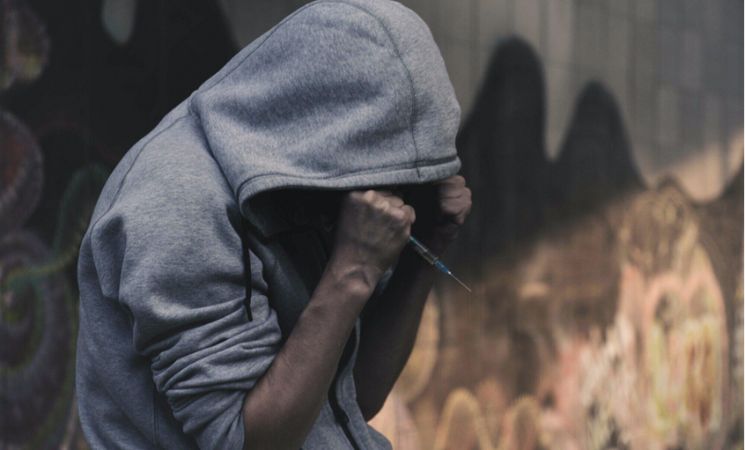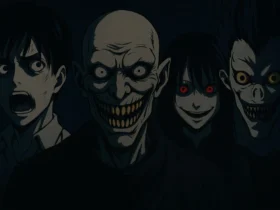Is your young teen showing signs of addiction?
It can be hard to notice, but it’s important to act early. Addiction can start when teens are young, and knowing the signs can help you take the right steps.
If your young teen has been acting differently, like changing their mood or not doing well in school, it might be time to think about addiction. Catching these signs early helps you get the right help.
Taking action and offering support can lead to a better future for them.
Changes in Behavior
If your teen starts acting differently, it could be a sign of addiction. They might become more secretive, avoid family time, or be quick to argue. These changes are often the first teen addiction symptoms to be noticed.
When a young teen shut themselves off from close friends or become distant, it’s a good idea to pay attention. These behavior changes can show that something is wrong.
If this happens, it’s important to talk to your teen and get help. Finding the right support, like from Zoe Behavioral Health can help both you and your teen understand what’s going on and find the right steps to take.
Mood Swings
If your teen is suddenly experiencing intense mood swings, it may be a sign of addiction. You might notice rapid shifts from anger or irritation to sadness or extreme happiness, often without a clear reason.
These unpredictable emotions are common signs that something deeper may be at play. Frequent mood changes can make it harder for you to connect with your teen, and it might feel like you’re walking on eggshells.
If these mood swings are accompanied by other signs, addiction could be the cause. Addressing these changes early is crucial. Addiction recovery for youth can provide the support needed to guide your teen through these struggles and help them regain emotional balance.
Poor School Performance
If your teen’s grades are dropping or they stop caring about school, it might be a sign of addiction. They could begin missing classes or not doing their homework. This can happen because addiction behaviors take up their focus and energy.
They might not be able to concentrate or stay motivated. The school once mattered, but now it seems less important. If you see this happening, it’s important to act quickly.
Getting help early can make a big difference. Addiction behaviors can be tough, but with the right support, your teen can start recovering and get back on track.
Loss of Interest in Hobbies
When a teen suddenly loses interest in hobbies they once loved, it can be a sign of addiction. Teens often turn to activities they enjoy, like sports, music, or art, for fun or relaxation.
If these interests fade and they seem uninterested in things that once made them happy, it may indicate a deeper issue. Addiction can cause a young teen to withdraw from things they care about.
This lack of interest in hobbies can be one of the first signs of addiction. Catching this early and seeking help can help your teen get back to doing what they love. Support for addiction recovery can help them regain their passion and focus.
Physical Changes
Physical changes in a teen can be a sign of addiction. You may notice things like sudden weight loss or gain, bloodshot eyes, or changes in skin tone. These changes happen because addiction affects the body in different ways.
For example, drug or alcohol use can lead to dehydration, poor nutrition, or disrupted sleep, all of which can show up physically. If your teen is looking different than usual and these changes seem unexplained, it could be a warning sign.
It’s important to address these changes as early as possible. Getting the right help, like addiction recovery support, can guide your teen toward better health and well-being.
Risky Behavior
If your teen begins engaging in risky behavior, it could be a sign of addiction. This might include actions like skipping school, driving under the influence, or participating in unsafe activities. Addiction can lead teens to make poor choices they wouldn’t normally make.
You may notice them taking risks without thinking about the consequences. This type of behavior can be dangerous, not only for the teen but for others around them. If risky actions become a pattern, it’s important to take immediate steps to seek help.
Support for addiction recovery can guide your teen back on a safer path, helping them make healthier decisions and avoid harmful behaviors.
Health Issues
Health issues in a teen can sometimes be a sign of addiction. If your teen keeps having headaches, feeling tired, or complaining of stomach aches, it could be more than just normal teen problems. Addiction can affect the body in many ways, leading to poor health.
Substance use can cause sleep problems, make them feel sick often, or weaken their body. These health issues might seem small at first, but if they keep happening, it’s important to look into the cause.
Getting help early is key to making sure your teen stays healthy. Addiction recovery support can help them get back to feeling better both physically and mentally.
Changes in Friend Group
If your teen begins hanging out with a new group of friends, it could be a sign of addiction. Often, when teens start using substances or engaging in unhealthy behaviors, they are drawn to peers who encourage similar actions.
You may notice your teen spending more time with people who seem to share or support risky habits. This change in their friend group can signal a shift in their interests and values.
It’s important to keep track of who your teen is spending time with and watch for any signs that the new group may be influencing them negatively. If you’re concerned, seeking support for addiction recovery can help your teen get back on the right track.
Helping Your Young Teen Overcome Addiction: A Path to Recovery
In conclusion, recognizing the signs of addiction in a young teen early can make a big difference in their recovery journey. By staying alert to changes in behavior, mood, and health, you can provide the support they need.
Seeking professional help is an important step in guiding your teen toward a healthier, happier future. Don’t wait-take action today to support your young teen’s path to recovery.














